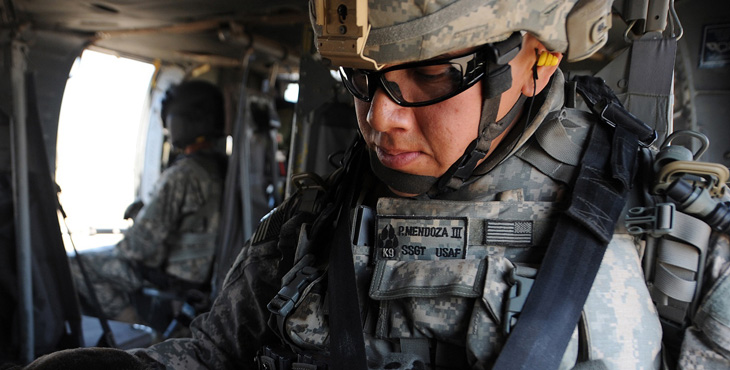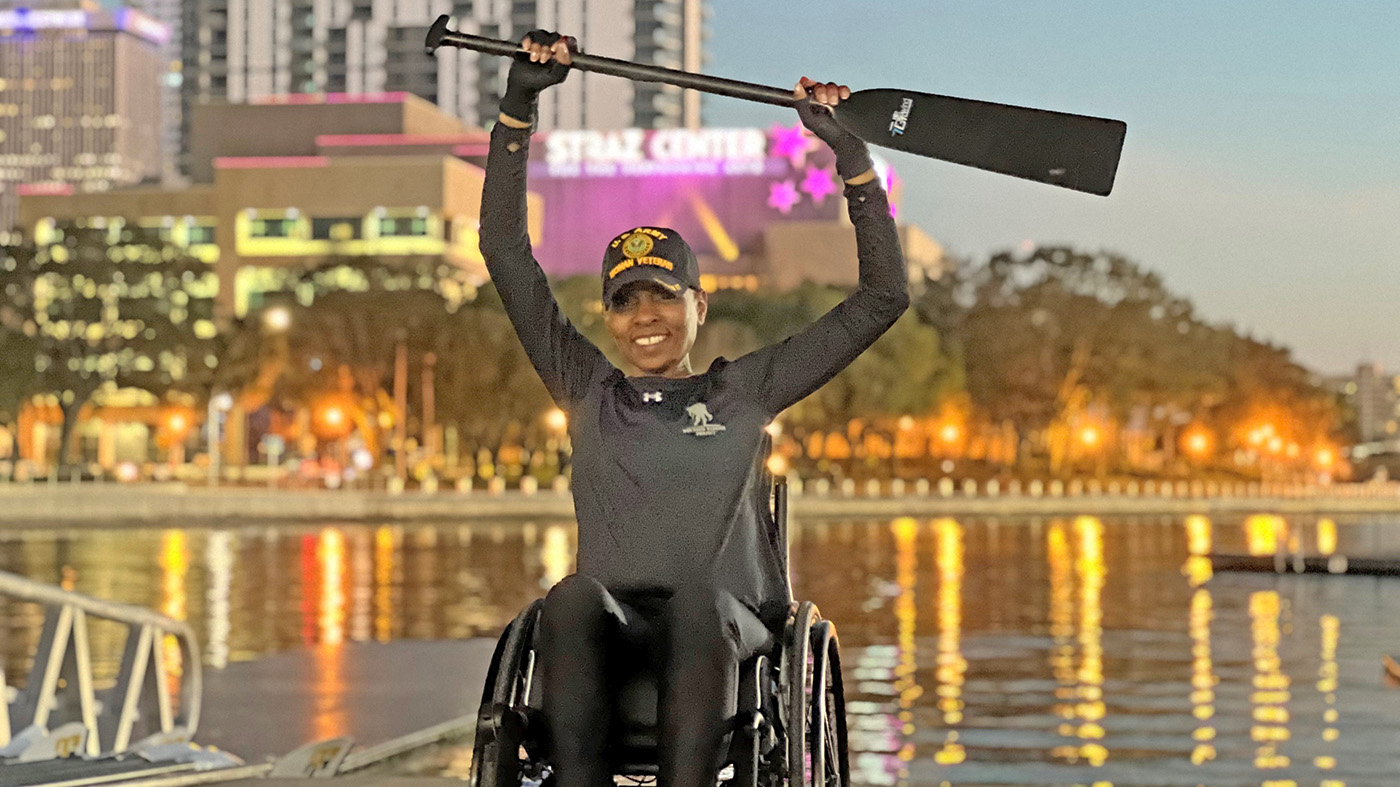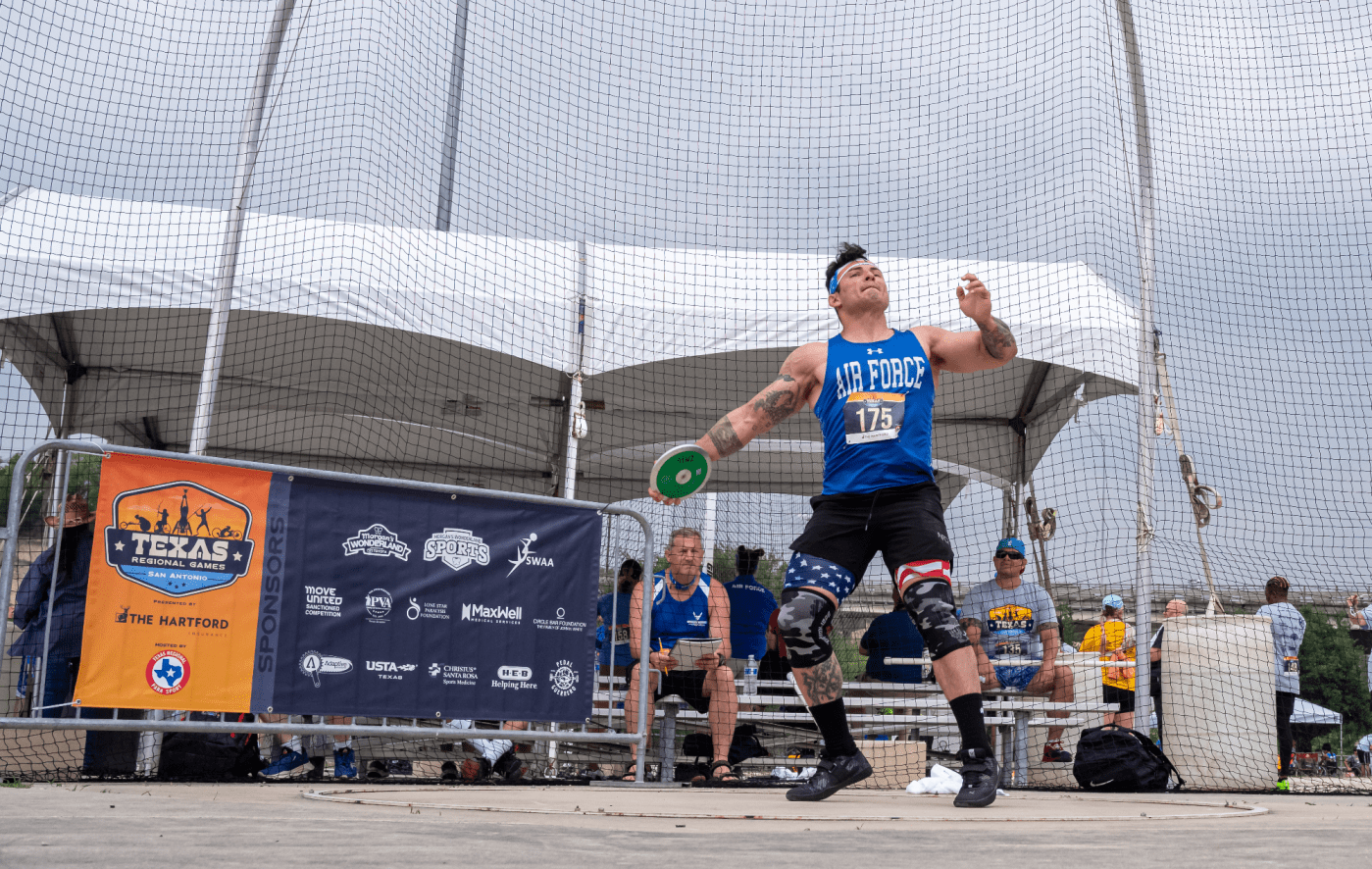Members of the military as well as Veterans face a greater risk for traumatic brain injury (TBI), concussion (also known as mild TBI), and post-concussion syndrome as a direct result of their service, according to a large body of research. In fact, first-time TBI diagnoses of active-duty military members rose every year from 2000 to 2012, with the majority of those being listed as concussion according to the Defense and Veterans Brain Injury Center.
Traumatic brain injuries, mild or otherwise, can lead to additional complications for many Veterans, including ongoing physical disabilities related to chronic migraine, headache disorders and associated vision or neurological problems. Painful light sensitivity, or photophobia, is another of these debilitating symptoms of TBI and post-concussion syndrome. In soldiers returning from Iraq or Afghanistan, 77 percent complained of light sensitivity associated with blast-related TBI; it is the most common of many reported visual complications experienced by post-war Veterans. Studies have also shown that post-concussion light sensitivity can last for weeks or months after the initial injury, and in some cases it never fully recedes. In addition, it can have a significant impact on a person’s daily life—such as reducing one’s ability to participate in activities or impairing performance in the workplace.
Types of light that can cause pain
Researchers still do not have a firm grasp on what causes light sensitivity in people with traumatic brain injury, but they do have an idea of the types and characteristics of light that can be problematic. These include:
- Bright, intense light
- Blue light (specifically wavelengths in around 480nm)
- Fluorescent lighting
- Glare and other repetitive light patterns
It is important to note that any light can cause pain for a hyperreactive brain—even lower levels of light, such as that which is produced by an overcast day—due to heightened pain responses to external stimuli. However, the types mentioned above are especially troublesome.
Treatment for photophobia and light sensitivity
The most important action for Veterans to take is to see a doctor or specialist and ensure proper diagnosis of any underlying condition, whether it is TBI, migraine or another neurological disorder. This can help rule out a more serious health issue that is causing painful photophobic reactions as well as identify strategies for addressing the condition.
Currently, there is no medication that can directly treat light sensitivity. As a result, it is often recommended that Veterans identify and minimize the effect of light-specific triggers in order to prevent symptoms from manifesting. Unfortunately, people with light sensitive eyes commonly choose to wear sunglasses indoors, but doctors do not endorse this behavior because photophobia can actually worsen over time as a result; this is a process known as “dark adaptation.”
Instead, a more effective treatment is the use of special photophobia glasses that are precision-tinted with FL-41. This tint filters the most painful wavelengths of light that are abundantly present in everyday light sources such as fluorescent lighting, sunlight, and computer and mobile device screens. In addition, research has shown these tinted lenses not only lessen painful photophobia but also can reduce overall headache and migraine frequency—another common side effect of TBI and concussion for Veterans—by as much as 74 percent.
Veterans who are eligible for VA benefits should also inquire with their doctor or neurologist as tinted glasses that treat photophobia are often covered through the VA as a “low vision device” in the category of sensory aids. Durable goods are typically purchased through the VA Rehabilitation and Prosthetics Services department and/or its local representative(s).
More tips for managing TBI-Related light sensitivity
There are numerous other behavioral suggestions for managing light sensitivity, and these might include: reducing amount of blue light exposure by taking frequent eye breaks from computer or mobile devices and avoiding extended usage before bed; providing more natural light and/or alternatives to fluorescents for the office or home environment; wearing dark and polarized sunglasses and a hat outside on bright, sunny days; using eye drops to keep your eyes well lubricated and reduce chances of developing temporary eyestrain or dry eye, both of which can worsen light sensitivity. All of these can be valuable in a Veteran’s efforts to diminish the negative impact of harmful light.

Topics in this story
More Stories
Army Veteran Malika Montgomery says one of the things that helped her live her best life with multiple sclerosis was surrounding herself with positive people.
Acknowledging the issues that Veterans face and working toward solutions is crucial for ensuring they have the support they need to thrive in civilian life.
Last year, Move United hosted 26 adaptive sports competitions in 22 states for 1,537 individual athletes. This year, that number is increasing to 35 events in 24 states for even more Veteran athletes.






1995 training with the 4151st USARF school BNCODC Phase II, 25 July 1995 at 1305 just after lunch while typing using Windows 95 on a CRT computer monitor, faster then I could close my eyes, flashing red and blue plus signs and squares shoot into my eyes effecting each eye individually I’m staring at the keyboard shaking my head to clear it when I tell the sergeant sitting next to me something isn’t right and I put my right hand on the back of the chair to stand up and and this is what I was told my the sergeant sitting next to me, “I pushed you against the wall trying to hold you up but you fell.” Another SGT in the room told me a medic from who served during Vietnam back in and put a book in your mouth, you quit shaking and moving turned blue to purple everybody thought your were dead. SFC Peterson who was in charge of the classroom who I contacted would write me and for the first time in 1999 I would learn that the school determined that I was hurt by flashing strobe like effect on computer monitor. In 1997 I asked for help from my supervisor at Total Army Personnel Command in Virginia, I would be sent to see a Psychiatrist at Ft Bliss, TX for inappropriate memorandum not for my injury this doctor would write all lies. June1998 I was sent back for medical test, those test never made it back to St. Louis, so I was reordered to Ft Bliss in November 1998, those orders were rescinded because Major Michael Crisp before he left St. Louis in June secretly submitted me for discharged when enlistment was up in October instead of my Retired Reserves discharge. I would be diagnosis as schizophrenic. I for all these year was true to my story of what happened to me at the Veterans Hospital, in 2006 the last time I would see this doctor. Doctor Geppert at the VA, she just goes off on me yelling at me saying, “Your a (redacted) liar!” “There was no red light shooting into your eyes that’s all a lie!”, “Your (redacted) lying, admit it admit it!” I just stood staring at the floor. Nobody will ever believe me. To this day no doctor at the VA believes me.
Greg Bullock or Gary Hicks write me at my email address, earlier I wrote my story of my injury I suffered in 95 but when I summited it it got erased.
Email on the way
One of my disabilities is that of TBI-Related light sensitivity, I mentioned it to my eye doctor when I went for eye check up and asked if I could get tinted glasses, and was told they were not part of benefits, only clear reading and distance glasses I was entitled.
I REALLY NEED GLASSES THAT HELP OR HAS FL-41. I HAVE ANYWHERE FROM 25-30 MIGRAINES A MONTH. THEY ARE REALLY DIABILITATING. ALL YOU WANT TO DO IS STAY IN A DARKENED ROOM, AND SLEEP. I AM CURRENTLY GOING TO THE HARRY S. TRUMAN VETERANS HOSPITAL IN COLUMBIA. I WILL DEFINATELY ASK FOR HELP ONCE AGAIN WITH ALL THE ISSUES WITH MY TBI, INSTEAD OF JUST MEDS LIKE LYRICA. THIS MED ONLY HELPS A LITTLE WITH FIBROMAYLGIA. IT ALSO CAN MAKE YOU GAIN UNWANTED POUNDS. NOTHING IS BEING TO HELP WITH THIS. THIS VETERAN REALLY NEEDS HELP. I NEED A VEHICLE I CAN PUT MY ELECTRONIC WHEELCHAIR IN. SO I CAN ATTEND MY APPOINTMENTS. MY WIFE HAS PUT IN FOR CARETAKERS ASSISTANCE. SHE REALLY HELP ME. SO FAR THEY KEEP TURNING ME DOWN, THE VA NOW SAYS MY INJURIES TO MY SPINE ARE NOT SERVICE REALTED. YET I HAVE GIVEN THEM LOTS OF EVIDENCE TO PROVE I WAS ASSAULTED IN THE NAVY WHILE ON DUTY AND SERVING THIS GREAT NATION.